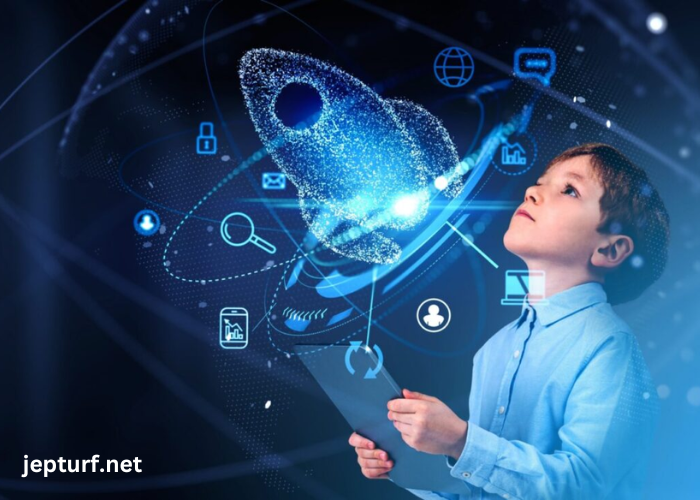Education is the cornerstone of human progress, and over the centuries, it has evolved from primitive forms of knowledge transfer to sophisticated, technology-driven systems. In the 21st century, the pace of innovation in education is accelerating, transforming the way we teach and learn. This article explores the empowering innovations that are reshaping education, from personalized learning and online education to immersive technologies and gamification.
The Changing Landscape of Education
The traditional model of education, where students sit in a classroom, listen to lectures, and take notes, has been the dominant approach for centuries. However, the digital revolution has disrupted this model and opened up new possibilities for learning.
Personalized Learning
One of the most significant innovations in education is personalized learning. This approach recognizes that every student is unique, with their own learning pace, style, and strengths. Personalized learning leverages technology to tailor educational content to individual students, allowing them to progress at their own speed and explore topics that interest them.
Personalized learning platforms use data and algorithms to assess a student’s strengths and weaknesses. They then provide targeted lessons and assignments to address these areas, ensuring that each student gets the support they need to succeed. This approach not only enhances learning outcomes but also fosters a deeper engagement with the material.
Online Education
The rise of the internet has given birth to online education, breaking down geographical barriers and making learning accessible to people all over the world. Online courses, also known as Massive Open Online Courses (MOOCs), have democratized education by offering high-quality content from top universities and institutions for free or at a fraction of the cost of traditional education.
Online education provides flexibility, allowing learners to study at their own convenience. This has been particularly beneficial for working professionals and individuals with busy schedules who can now pursue further education without disrupting their daily routines.
Immersive Technologies
Immersive technologies like virtual reality (VR) and augmented reality (AR) are revolutionizing the way students engage with educational content. These technologies create immersive and interactive learning experiences that are particularly effective in teaching complex subjects.
In a VR classroom, for example, students can explore the human body in 3D, walk through historical events, or conduct virtual science experiments. AR applications enhance traditional textbooks by overlaying digital information onto physical objects, making learning more engaging and dynamic.
Gamification
Gamification is another innovation that is gaining traction in education. It involves incorporating game elements, such as points, badges, and leaderboards, into the learning process to motivate and engage students. Gamified learning platforms make education fun and competitive, encouraging students to set goals and track their progress.
Gamification also fosters collaboration, as students can work together on challenges and quests. This social aspect of learning enhances communication skills and teamwork, which are valuable life skills.
Challenges and Considerations
While these innovations hold great promise, they also come with challenges and considerations that educators and policymakers must address.
Access and Equity
Not everyone has equal access to the digital resources required for online education and immersive technologies. The digital divide remains a significant barrier to equitable education. It is essential to ensure that all students, regardless of their socioeconomic background, have access to the necessary technology and internet connectivity.
Quality Assurance
The proliferation of online education has raised questions about the quality of the content and the credibility of the institutions offering online courses. It is crucial to establish robust quality assurance mechanisms to maintain high standards in online education.
Privacy and Data Security
Personalized learning relies on collecting and analyzing vast amounts of student data. While this can improve learning outcomes, it also raises concerns about data privacy and security. Educators and edtech companies must prioritize protecting students’ sensitive information.
Teacher Training
Implementing these innovations effectively requires proper training for educators. Teachers need to be proficient in using technology and adapting their teaching methods to suit personalized learning, online education, and immersive technologies.
Success Stories in Innovative Education
Despite the challenges, many success stories illustrate the transformative power of innovative education.
Khan Academy
Khan Academy is a shining example of the impact of online education. Founded by Salman Khan in 2008, it offers a vast library of free educational videos on a wide range of subjects. Khan Academy’s mission is to provide a world-class education for anyone, anywhere. It has empowered millions of students around the globe to take control of their learning.
Duolingo
Duolingo, a language-learning app, combines gamification with personalized learning. It offers a fun and engaging way to learn new languages, with over 300 million users worldwide. Duolingo’s success demonstrates how technology can make learning a new language accessible and enjoyable.
Stanford Virtual Human Interaction Lab
The Stanford Virtual Human Interaction Lab explores the educational potential of virtual reality. Researchers at the lab have created VR experiences that teach empathy, environmental awareness, and historical events. These immersive experiences have the potential to revolutionize education by making complex subjects more accessible and engaging.
The Future of Education
As technology continues to advance, the future of education holds even more exciting possibilities.
Artificial Intelligence (AI)
AI has the potential to transform education further. It can provide personalized recommendations for students, automate administrative tasks for educators, and even assist in grading assignments. AI-driven chatbots can offer instant help to students when they encounter difficulties in their studies.
Blockchain Credentials
Blockchain technology could revolutionize credentialing and verification of educational qualifications. By securely storing diplomas and certificates on a blockchain, individuals can have complete control over their educational records, making it easier to share their qualifications with employers and institutions.
Lifelong Learning
The concept of lifelong learning is becoming increasingly important in a rapidly changing world. As job roles evolve, individuals will need to continuously acquire new skills. Educational institutions and employers will need to collaborate to provide opportunities for ongoing education and upskilling.
Virtual Labs and Simulations
Virtual labs and simulations will continue to enhance hands-on learning in fields such as science and engineering. Students can conduct experiments and simulations in a safe virtual environment, gaining valuable practical experience.
Conclusion
Innovations in education are empowering minds and reshaping the way we learn and teach. Personalized learning, online education, immersive technologies, and gamification are just the beginning. While challenges such as access and privacy must be addressed, the potential benefits are immense.
The success stories of Khan Academy, Duolingo, and the Stanford Virtual Human Interaction Lab demonstrate the transformative power of innovative education. As we look to the future, AI, blockchain credentials, lifelong learning, and virtual labs promise to further revolutionize education, ensuring that individuals can acquire the knowledge and skills they need to thrive in an ever-changing world.
Empowering minds through innovative education is not just an aspiration; it is a reality that is already changing lives and shaping the future. As educators, policymakers, and technologists continue to collaborate, the possibilities for education are limitless, and the journey towards empowering minds is bound to be an exciting one.







